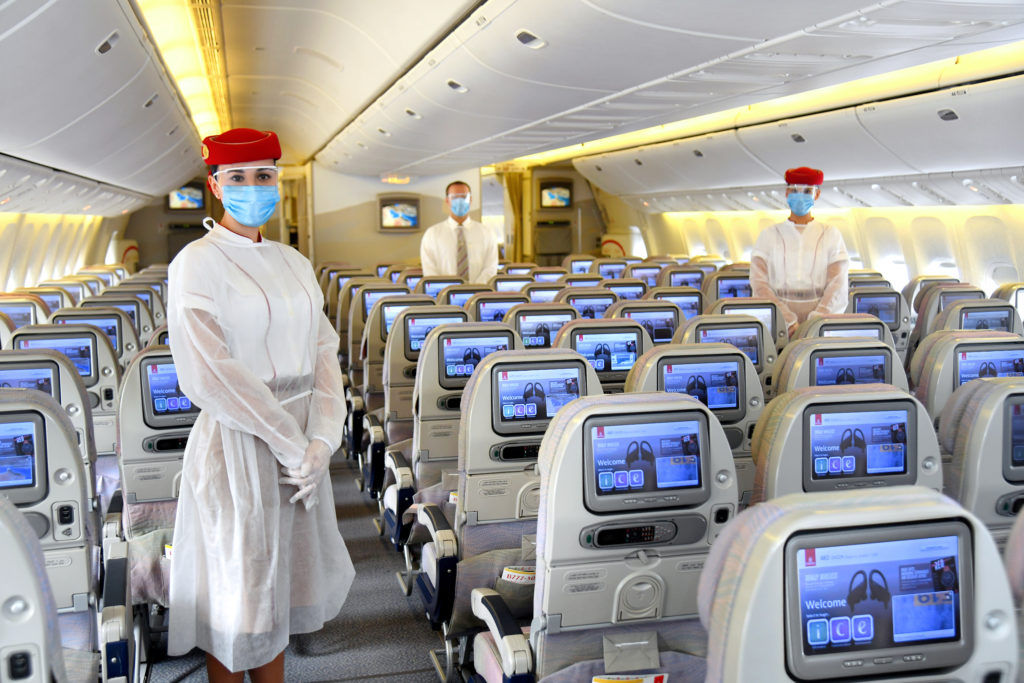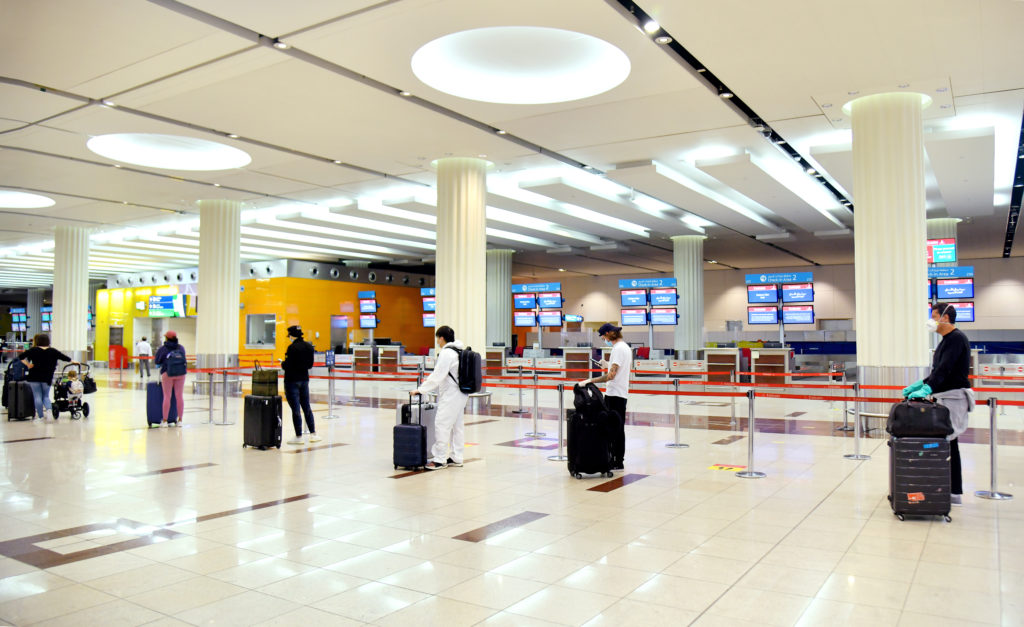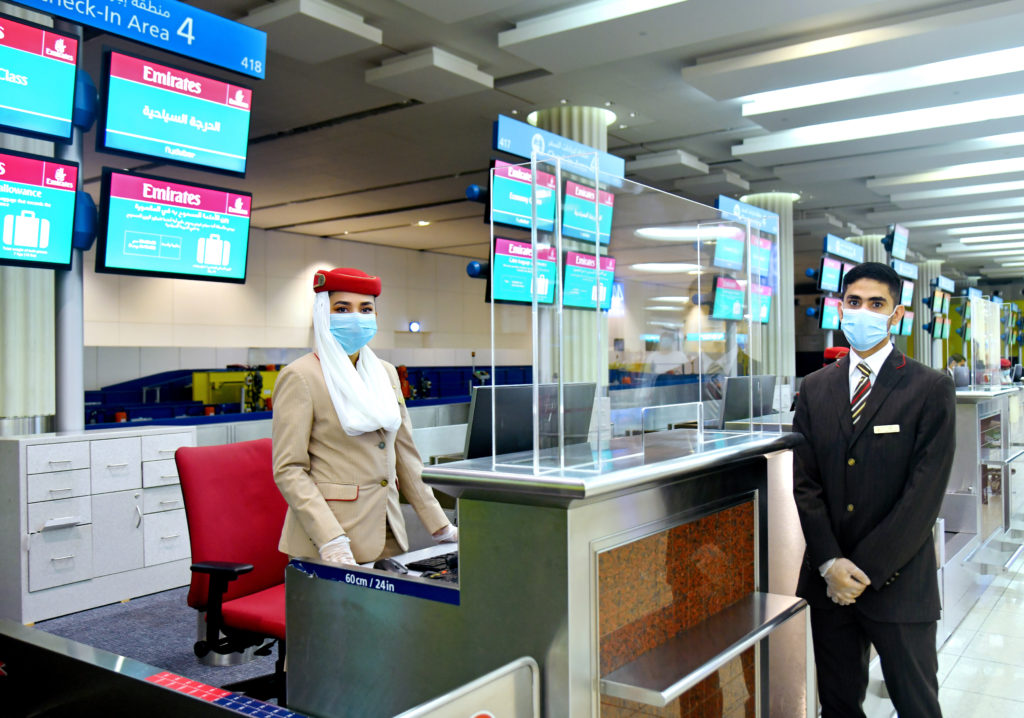Emirates, the super-connector based out of Dubai, is perhaps one of the most well-known and most visible airlines across the globe. And perhaps one of the indicators of when international travel demand will come back. Emirates has now decided that they won’t be resuming some sort of scheduled operations till July 2020, at least.
The Emirates story so far…
Circa March 2020, Emirates did a sort of a flip-flop on closing down flights, however, when the United Arab Emirates announced a full closure on flights, and they closed out all their flight operations on March 25, 2020.
On April 6, 2020, Emirates started to fly again, however, they had a very very limited run so far. Emirates operations at the moment only allow for flying people out of the UAE, so no one is allowed inside the UAE at the moment. All these operations are being conducted with the Boeing 77W aircraft, and flights are all over the place. Here are some I could see on FlightRadar24 as I wrote this.
- Flights to USA: 3X a day to New York JFK, Chicago and others
- Flights to Europe (including Madrid, Vienna, London Heathrow, Paris, etc).
- Flights to Australia (Melbourne)

Emirates has opened flight bookings from July 1, 2020
The latest we know about Emirates resuming flights is from July 1, 2020, onwards. This is as per the updated schedule on Emirates’ website. While this is subject to change, and perhaps flights may be further delayed, for now, this is the stated position of Emirates on resuming flights. This does tell us that one of the world’s most international airline, who would perhaps have a good sense of the risk around the current CoronaVirus pandemic, as a proxy to the return of international flying in the coming days.
Emirates has put in place new precautionary measures until further notice
Emirates is stepping up precautionary measures at the airport and onboard to ensure the health and safety of its employees and customers. All cabin crew, boarding agents and ground staff in direct contact with passengers will now don personal protective equipment (PPE) which includes a protective disposable gown over their uniforms, and a safety visor, in addition to masks and gloves.

At Dubai International airport, gloves and masks are mandatory for all customers and employees. Thermal scanners monitor the temperatures of all passengers and employees stepping into the airport. Physical distancing indicators have been placed on the ground and at waiting areas to help travellers maintain the necessary distance during check-in and boarding.

The airport team has also installed protective barriers at each check-in desk to provide additional safety reassurance to passengers and employees during interactions over the counter.

Onboard Emirates’ flights, seats are pre-allocated with vacant seats placed between individual passengers or family groups in observance of physical distancing protocols.
Emirates has also modified its inflight services for health and safety reasons. Food and beverages continue to be offered in the form of bento-styled boxes to reduce contact between the crew and customers during meal service and minimise the risk of interaction. The personal boxes provide customers with sandwiches, beverages, snacks and desserts.
Similarly, to reduce the risk of spreading the virus by touch, magazines and other print reading material are temporarily unavailable. Cabin baggage is currently not accepted on flights. Carry-on items allowed in the cabin are limited to laptop, handbag, briefcase or baby items. All other items have to be checked in, and Emirates will add the cabin baggage allowance to customers’ check-in baggage allowance. Customers have to wear their masks and gloves throughout their journey from check-in until they disembark.
All Emirates aircraft will go through enhanced cleaning and disinfection processes in Dubai, after each journey.
Bottomline
I don’t think anyone has the crystal ball to say what will work and what won’t work in the world of aviation in the times ahead, but Emirates has some of the smartest people on the planet on board, and hence, I’d closely follow them to see how the world of aviation looks going forward.
What do you think about when the world will open up their borders again?
Liked our articles and our efforts? Please pay an amount you are comfortable with; an amount you believe is the fair price for the content you have consumed. Please enter an amount in the box below and click on the button to pay; you can use Netbanking, Debit/Credit Cards, UPI, QR codes, or any Wallet to pay. Every contribution helps cover the cost of the content generated for your benefit.
(Important: to receive confirmation and details of your transaction, please enter a valid email address in the pop-up form that will appear after you click the ‘Pay Now’ button. Even though the amount you enter has to be in INR, you may use an international card to process the transaction.)
We are not putting our articles behind any paywall where you are asked to pay before you read an article. We are asking you to pay after you have read the article if you are satisfied with the quality and our efforts.


Seems pointless to mandate gloves throughout the flight. Gloves don’t really help in any setting outside a hospital.
True
Gloves would help in any scenario if you’re coming in contact with contaminated surfaces. For the duration you’re wearing gloves it is important not to touch your face, body, clothes, cell phones or other articles you would be carrying off with you.
The key is to remove the gloves appropriately, sanitize your hands and then use phones, or touch your face.
PS: This is not from WhatsApp forwards and all. This comes from my personal experience with working in the food industry for the past 12 years.